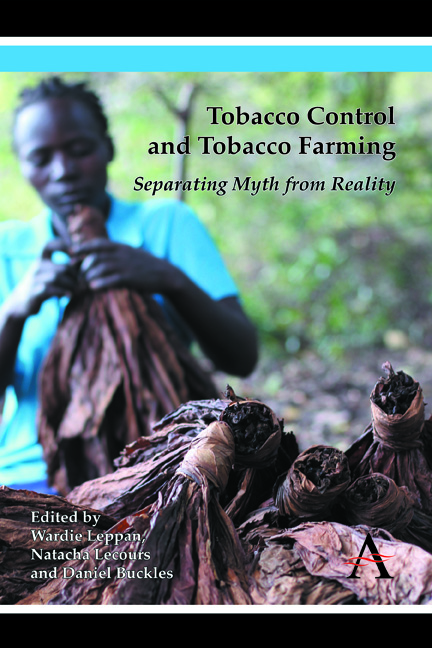Book contents
- Frontmatter
- Contents
- List of Figures, Tables and Photographs
- Foreword
- Preface
- Introduction: Separating Myth from Reality
- Section One The Determinants of Tobacco Leaf Demand
- Section Two Tobacco-Farming Conditions in Low- and Middle-Income Countries
- Section Three Economically Sustainable Alternatives to Tobacco
- Conclusion: Reframing the Debate on Tobacco Control and Tobacco Farming
- Annex: A Policy Brief on Tobacco Control and Tobacco Farming
- Contributors
Foreword
Published online by Cambridge University Press: 05 November 2014
- Frontmatter
- Contents
- List of Figures, Tables and Photographs
- Foreword
- Preface
- Introduction: Separating Myth from Reality
- Section One The Determinants of Tobacco Leaf Demand
- Section Two Tobacco-Farming Conditions in Low- and Middle-Income Countries
- Section Three Economically Sustainable Alternatives to Tobacco
- Conclusion: Reframing the Debate on Tobacco Control and Tobacco Farming
- Annex: A Policy Brief on Tobacco Control and Tobacco Farming
- Contributors
Summary
Tobacco farming and particularly tobacco farmers have been and continue to be used by the tobacco industry to slow down and even completely stop progress in tobacco control. This has been achieved largely through cleverly packaged messages which have built the myth that tobacco control is targeting tobacco farming and farmers. This book separates the myths from the reality and contains important facts about tobacco control and tobacco farming, as well as the fact that viable alternatives to tobacco farming exist. The International Development Research Centre (IDRC) has been at the forefront of supporting operational research that is generating the much-needed evidence that tobacco control does not target tobacco farming or farmers. This book is a testimony to that vision and commitment.
IDRC supports research especially in low-resource countries. This research generates evidence that answers critical public health questions. These answers then lead to policy change that benefits public health and subsequently the society at large. It is a good investment. This book tackles pertinent questions and provides answers through evidence. These questions include the perception that:
• Enacting laws that reduce the demand for tobacco will negatively affect producers, particularly smallholder farmers;
• Tobacco control has a negative impact on foreign exchange earnings;
• Tobacco farming is a very lucrative cash crop particularly for smallholder farmers and viable alternatives do not exist.
- Type
- Chapter
- Information
- Tobacco Control and Tobacco FarmingSeparating Myth from Reality, pp. xiii - xivPublisher: Anthem PressPrint publication year: 2014

